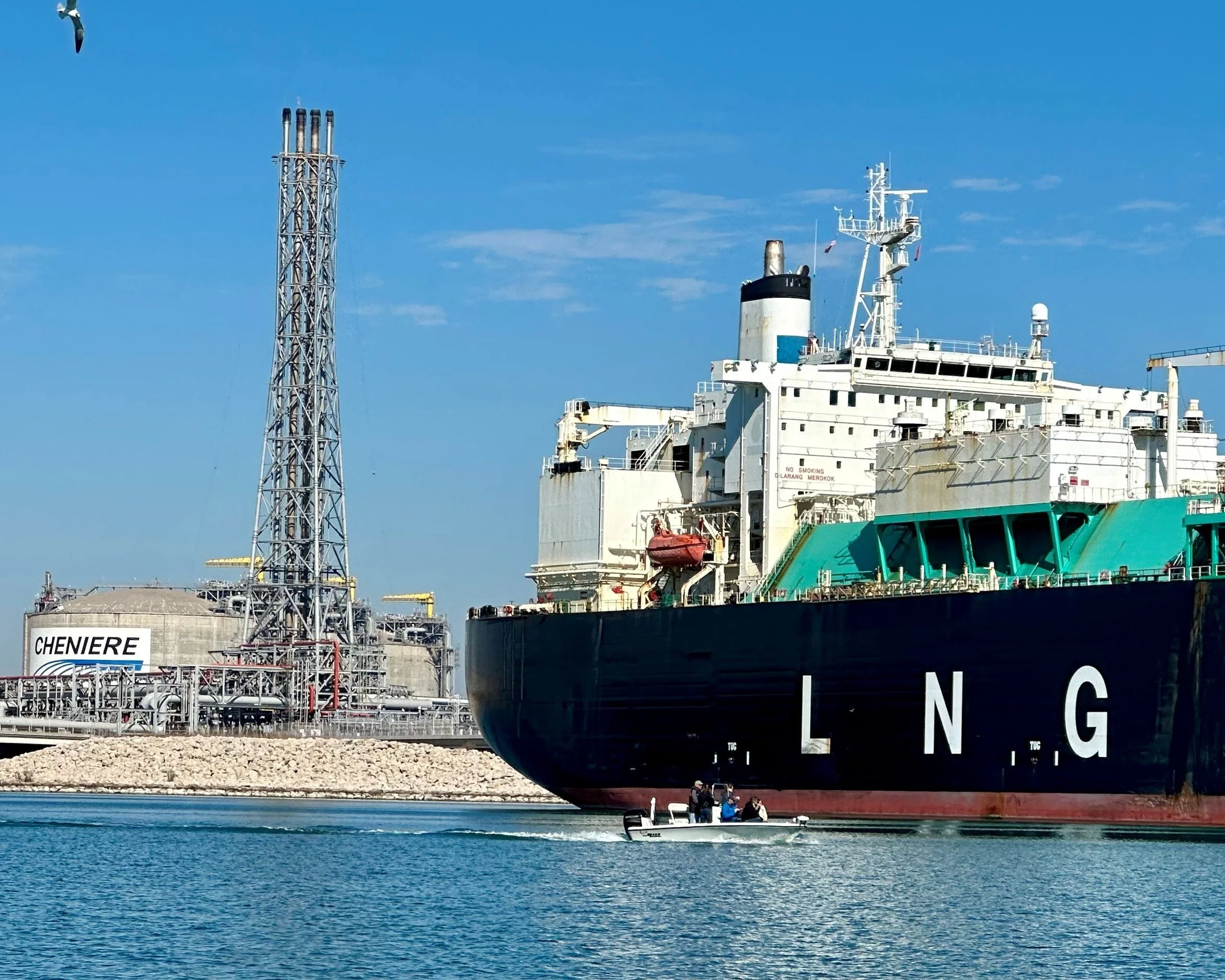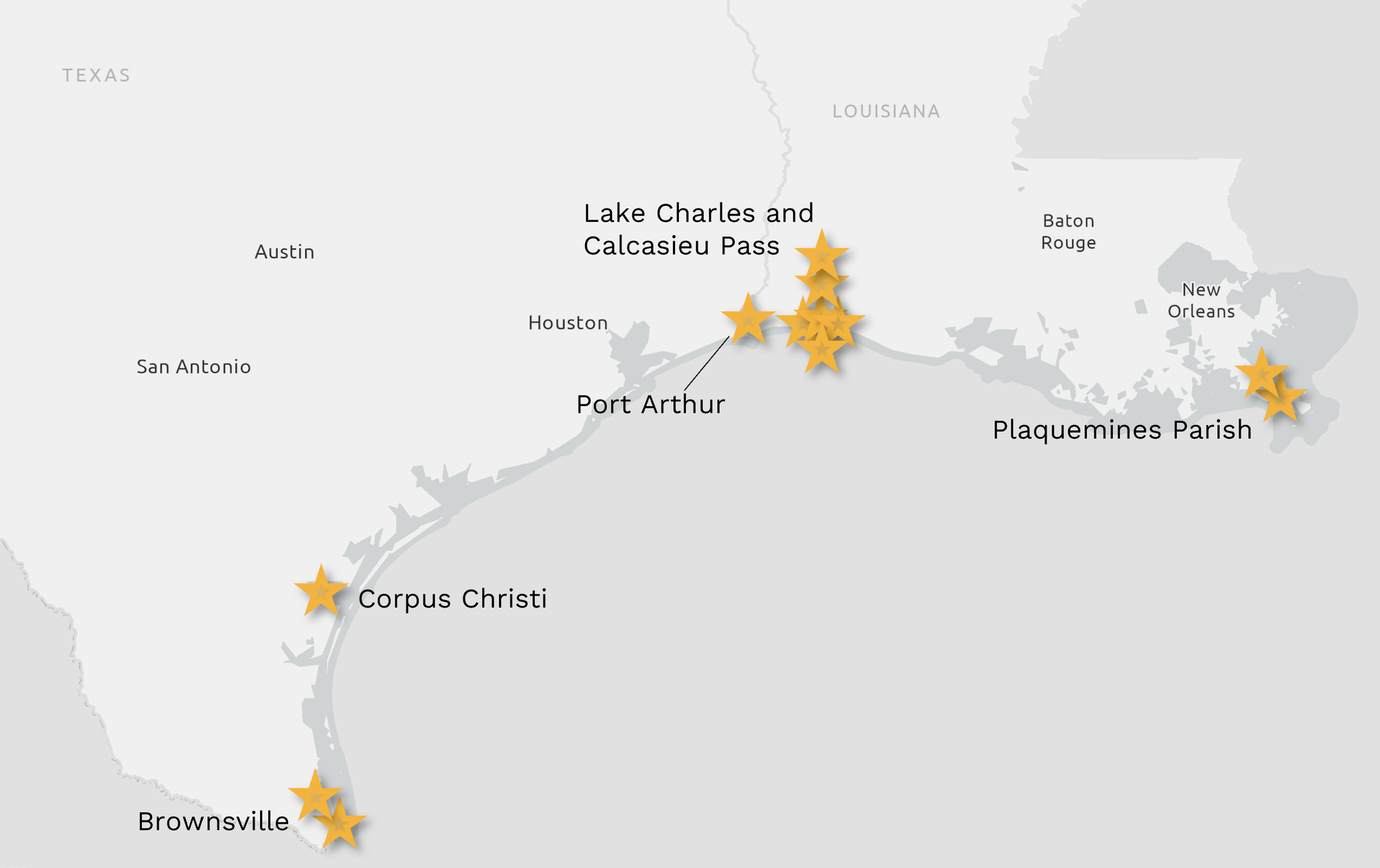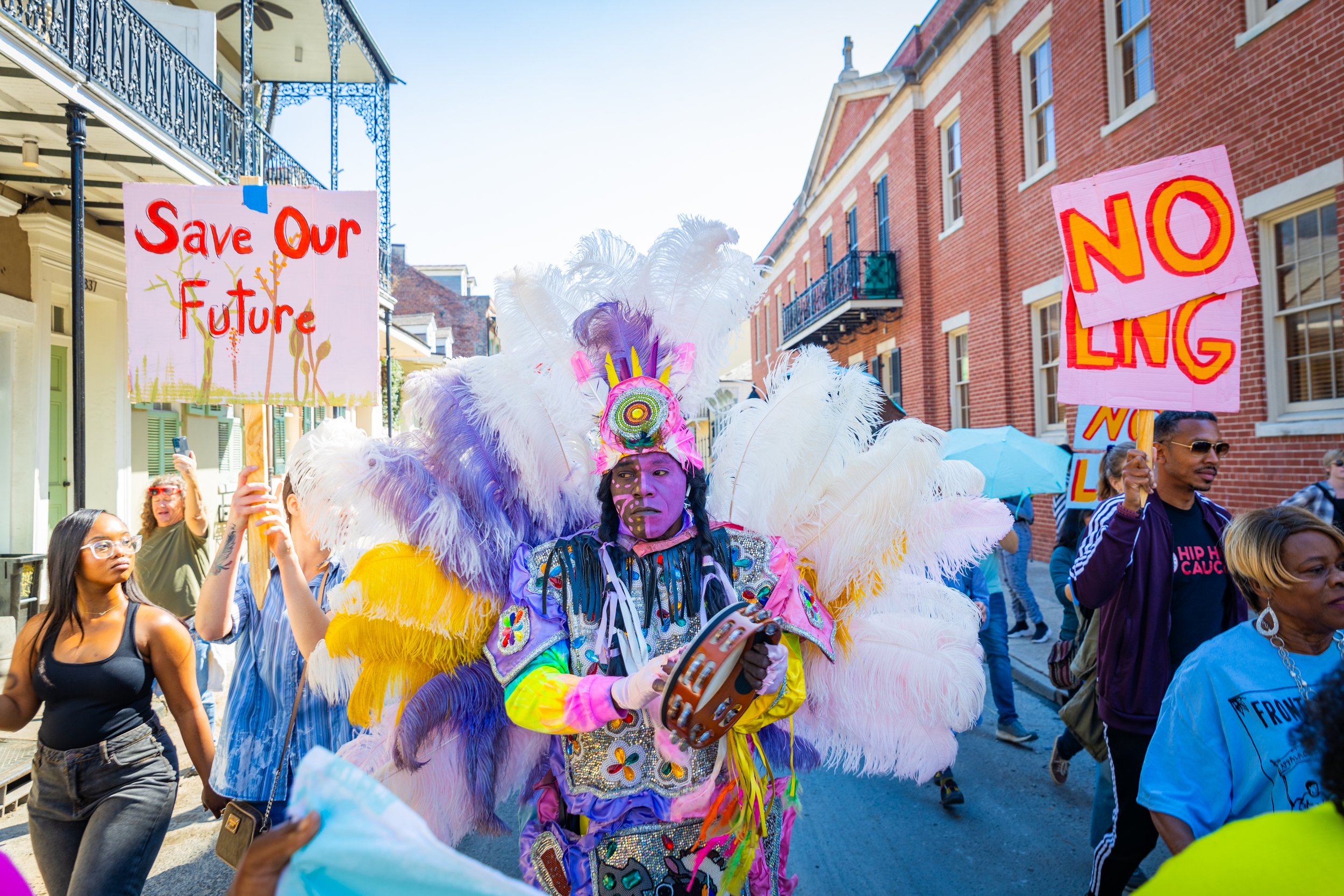Frontline Power Can Deliver a Major Shift in US Climate Policy
Frontline climate justice groups from across the Gulf Coast, alongside national and international allies, shocked the fossil fuel industry in January when they won a momentous victory, convincing the US Department of Energy (DOE) to pause approving permits for certain new liquified natural gas (LNG) export projects while the agency reviews the public interest criteria for evaluating them.
Cheniere’s LNG facility in Corpus Christi, whose expansion project is on hold thanks to the DOE pause.
For years, community-based groups have been sounding the alarm about the growing LNG export infrastructure being built in predominately Black, Brown, Indigenous, and low-wealth communities in Texas and Louisiana, where local air and water pollution is already intolerable in many cases. These groups are now ramping up efforts to turn this temporary pause into a permanent policy shift that prioritizes health and well-being as true public interests.
implications OF A PAUSE ON LNG ExportS
The United States is by far the world’s largest oil and gas producer and has recently become the world’s largest gas exporter. Studies have shown that over its lifecycle, exported LNG is worse than coal for the climate. The DOE pause directly affects several US projects and is also sowing uncertainty for planned LNG projects in Mexico that would export gas sent via pipeline from the US. It is an unprecedented opportunity to prevent a staggering amount of emissions from being locked in the decades to come.
In Texas and Louisiana, frontline groups are working to stall and stop fourteen proposed LNG export projects and expansions (see map) that, if halted, could avoid over 1.4 gigatons of greenhouse gas emissions, the equivalent of 362 coal fired power plants. Delaying and stopping US oil and gas export infrastructure also allows advocates in importing geographies — including Brazil, Europe, and Southeast Asia — time and space to bolster clean energy development in place of long-term fossil fuel contracts.
HOW FUNDERS CAN MEET THIS MOMENT
Since 2020, the Hive Fund has supported frontline communities across the Gulf South finding strength, courage, and voice in rising together for a cleaner and more just future. We’ve been in conversation with many of these leaders over the last two months to understand their views on what is needed in this pivotal moment. We are currently fundraising to meet their identified priorities for this critical phase of their work:
LNG protesters in New Orleans at a rally co-hosted by Hive Fund grantee partner Vessel Project of Louisiana. Photo by Jordan Daigre.jpg
Core support: Community-based groups are asking for continued and expanded core support for their year-round organizing, mutual aid, regulatory watch-dogging, permit challenges, and advocacy in local decision-making venues to protect their communities from LNG export infrastructure and other industrial harms. Despite the outsized impact of community-based groups in the Gulf South they often receive only a small percentage of philanthropic grants from climate funders, a trend that must be reversed if we are to leverage this moment. The Hive Fund provides long-term, flexible grants that give groups the capacity to hire staff, plan strategically via long-term thinking, respond to real-time threats and opportunities, and develop proactive visions for their communities.
Expanded capacity for global collaboration: Frontline Gulf South leaders have begun to create powerful connections with organizers in Europe, Ukraine, and Asia, strengthening the global movement for a clean energy transition and allowing them to deploy sophisticated strategies focusing on financiers, insurers, and other global actors that facilitate the expansion of fossil gas. Groups successfully used these strategies to secure cancellation of the Annova LNG export terminal near Brownsville, Texas, and they are requesting resources to deepen these efforts and expand collaborations to additional geographies.
Leading national activist Roishetta Ozane (with bullhorn) drawing attention to the role of financial institutions in enabling fossil fuel expansion.
Strategic communications support: With the dirty fuel industry and friendly state governments already lobbying to roll back the DOE pause, groups are requesting increased funding for communications that counter industry misinformation and proactively define public interest as the long-term health and well-being of communities. Those who are most at risk from the LNG export expansion are some of the most powerful voices at the center of these issues, and they will be key to both increasing awareness of the pause as a critical climate victory, and engaging community members throughout the DOE re-evaluation process. Additional support for communications and organizing campaigns designed by and highlighting frontline groups along the Gulf Coast will also help strengthen their connection with national efforts and ensure that local voices continue to be centered in the next phase of regulatory and legal work.
The DOE pause provides a critical window of opportunity to win a major policy shift in the largest producer of oil and gas in the world. The work that frontline leaders are able to do at this moment will have implications for decades to come. If you would like to learn more about opportunities to support these groups, please reach out to Nandini(at)hivefund(dot)org.
Get Up To Speed on LNG
A $290 Billion Investment Cements Natural Gas’s Relevance for Decades (Bloomberg, January 2024)
A Huge Win for Activists Puts Climate on the 2024 Agenda (NYT, January 2024)
The Oil and Gas Lobby is Panicking (Climate Insider, January 2024)
Report: Status of U.S. LNG Export Permits and Associated Greenhouse Gas Emissions (November, 2023)
German Activists Take Aim at Texas Natural Gas (Texas Monthly, January 2024)
Inside the fight to stop LNG export projects in South Texas (Canary Media, February 2024)
Strength for The Next Disaster (Patagonia, February 2024)
Communities Challenge Industry Power on the Gulf Coast (Hive Fund, September 2023)
America’s Rise as an Energy Export Powerhouse Hinges on One Town (WSJ, July 2023)
Black Residents of Corpus Christi’s Hillcrest Back in Court Over Pollution (Texas Observer, October 2022)
DOJ to Probe Discrimination Claim for Texas Desalination Plant (E&E News, February, 2024)




